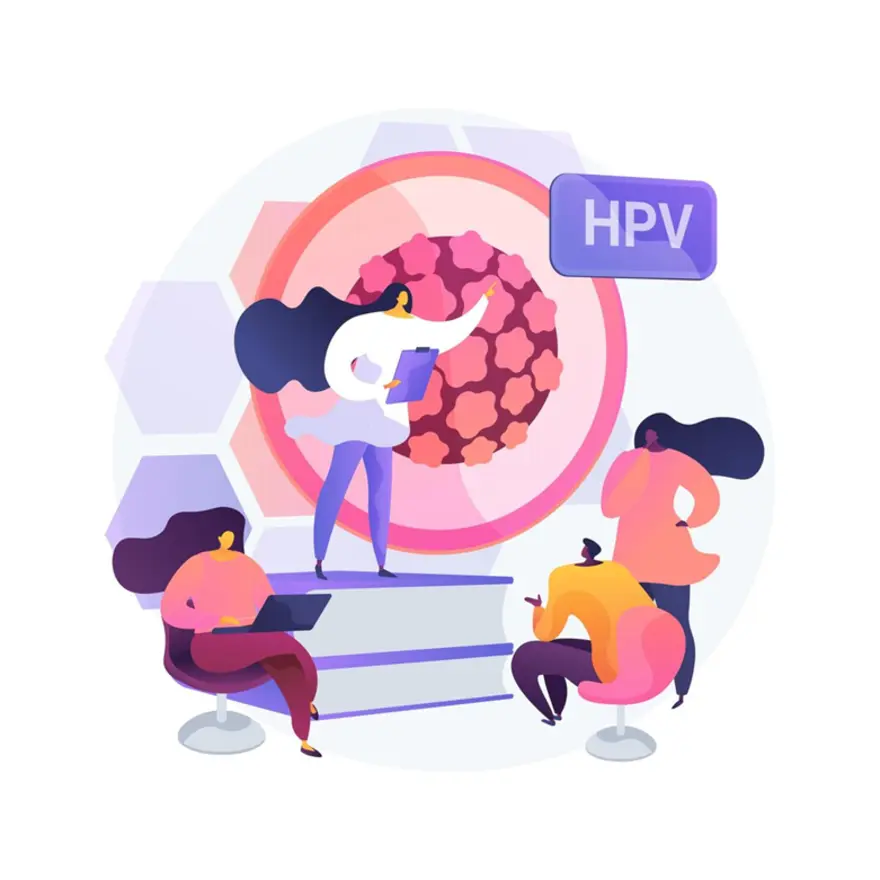Preventive Healthcare
TORCH Screen: Purpose, Procedure and Results
18514 Views
0

What Is the TORCH Test?
A TORCH test is a comprehensive panel of tests that help detect infections during pregnancy. These infections can usually be passed on to your foetus during the pregnancy, so early detection and treatment can help prevent any complications for your newborn.
TORCH, also known as TORCHS, is the shortened form of the different types of infections that are covered within this screening, namely:
- Toxoplasmosis
- Other include parvovirus, varicella, HIV, hepatitis virus
- Rubella
- Cytomegalovirus
- Herpes simplex
- Syphilis
What Is the TORCH Test Used for?
The TORCH test helps doctors screen for antibodies to infectious diseases during pregnancy. Antibodies are those proteins that recognize and destroy harmful substances in the body, such as viruses or bacteria. There are two specific antibodies that this tests for namely:
- Immunoglobulin G (IgG) which is an antibody that an individual has had in the past but is not considered to be acutely ill
- Immunoglobulin M (IgM) which is an antibody that is present when you are acutely ill with an infection
Your doctor will use this test to detect your history of infection and assess if your foetus has been exposed to these infections.
Test Results of the TORCH Test
A TORCH test in pregnancy is usually needed to understand if you have a current infection or if you have had one. If your TORCH profile test detects the presence of IgG or IgM antibodies, it gives you a TORCH test-positive result. Treatment for the detected infection can then be started to avoid spreading these infections to your foetus.
If no antibodies are detected, there is no trace of current or past infections, so you do not have to worry about passing on a condition to your baby.
Why Do I Need a TORCH Test?
Contracting a disease during your pregnancy could affect the baby in the womb. Most babies are more sensitive to harm during the initial 3 to 4 months of pregnancy. The TORCH test in pregnancy can help screen foetuses for infections that can cause
- Congenital disabilities
- Problems with the brain or nervous system
- Growth delays
What Happens During the TORCH Test?
Your healthcare provider will first clean and disinfect a small area, usually on your finger. They then use a sharp needle or a lancet to make a small prick in the area. The resultant blood is then collected in a small glass tube, on a test strip, on a slide or in a small container.
If the bleeding continues, you will be given a small piece of cotton or a round bandage to apply on the puncture site.
What Does a Positive TORCH Mean?
The TORCH test result is termed positive or negative. A positive TORCH test result indicates IgG or IgM antibodies were found in the blood. This shows that you had one of the screened infections in the past; you currently have an infection or have been vaccinated against one of these diseases.
Here are some key points to consider:
- The TORCH panel tests for several infections, including toxoplasmosis, rubella, cytomegalovirus (CMV), herpes simplex virus (HSV) and HIV.
- A positive result for any of these infections indicates that the mother has been exposed to the infection at some point in her life.
- It is important to determine the timing of the infection and whether it occurred before or during pregnancy to assess the risk of transmission to the foetus.
- Further diagnostic tests, such as ultrasound or amniocentesis, may be recommended to evaluate the health of the foetus.
- Early detection and appropriate management of these infections can help reduce the risk of complications for both mother and baby.
What Diseases Are Tested for Using the TORCH Panel?
The following diseases are tested for and detected using the TORCH test:
- Toxoplasmosis: Toxoplasmosis is a disease caused by the parasite (Toxoplasma gondii) that can enter the body through the mouth. While infants who contract this disease in the womb do not show symptoms for many years after which they may experience vision loss, deafness, seizures and mental retardation.
- Rubella: This is also known as German measles and can cause a rash in women. The side effects for the child are minor, but if infected in the womb, this can cause severe congenital disabilities like problems with vision, heart defects, and delayed development.
- Cytomegalovirus: This is a part of the herpes group of viruses that can cause hearing loss, intellectual disabilities and epilepsy in a developing foetus.
- Herpes simplex: This virus is usually transmitted from the mother to the foetus during the birth canal delivery. It can cause severe brain damage, seizures and breathing problems.
What Is the TORCH Test After Miscarriage?
A TORCH test after a miscarriage can help diagnose if the miscarriage was caused by exposure to TORCH infections during pregnancy.
Here are some key points about the TORCH test after miscarriage:
- The purpose of the TORCH test is to identify any current or past infections that could have contributed to the miscarriage.
- Screening for these infections is important because they can potentially harm the foetus and lead to miscarriage or other complications.
- If any of the infections are detected, further testing or treatment may be necessary to prevent future complications.
Is the TORCH Test Necessary?
A TORCH test can help in the early detection and treatment of infectious diseases so that you do not pass them on to your foetus. This can avoid severe congenital disabilities and issues, making it necessary for your baby's health.
When Is the TORCH Test Done in a Pregnancy?
When the TORCH test is done in pregnancy, it is essential as the earlier it is, the less likely you are to pass on the infection to your foetus. If you are planning a baby, some doctors may also advise you to take a TORCH test before pregnancy to ensure the presence or absence of infection.
Here is when the TORCH test is typically done in a pregnancy:
- During the first prenatal visit: The TORCH test is often included as part of routine prenatal screening. It is usually done in the early stages of pregnancy, ideally during the first trimester.
- If there are symptoms or risk factors: In some cases, the TORCH test may be ordered if the mother has symptoms that could suggest an infection, such as fever, rash or flu-like symptoms. Additionally, if there are known risk factors for certain infections, such as exposure to someone with a confirmed infection, the TORCH test may be recommended.
- Repeated testing: Depending on the results of the initial TORCH test and other factors, additional testing may be required throughout the pregnancy. This can help monitor any changes in infection status and guide appropriate management.
What Does the TORCH Test Indicate?
A TORCH test indicates the presence or absence of antibodies IgG and IgM when contracting an infectious disease.
It is important to note that a positive result on the TORCH test does not necessarily mean that a baby will be affected by the infection. Further diagnostic testing and consultation with a healthcare provider are needed for proper evaluation and management.
Conclusion
The TORCH test is essential during pregnancy to maintain the health of your foetus. As TORCH infections can cause a miscarriage, doing these early in your pregnancy journey is important. If you are pregnant or planning to become pregnant, speak with your healthcare provider about whether the TORCH test may be recommended for you.
Top diagnostic centres like Metropolis Labs have dedicated test packages that include every test you need during your pregnancy to gauge your health and the health of your foetus. Check out the entire list of services and tests available now.













1701259759.webp)





















 WhatsApp
WhatsApp